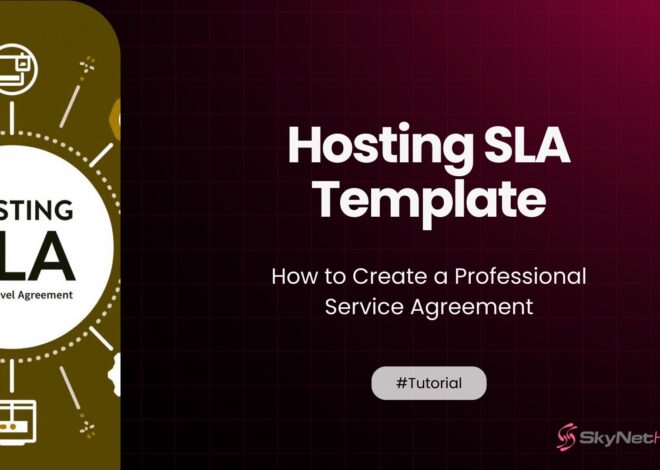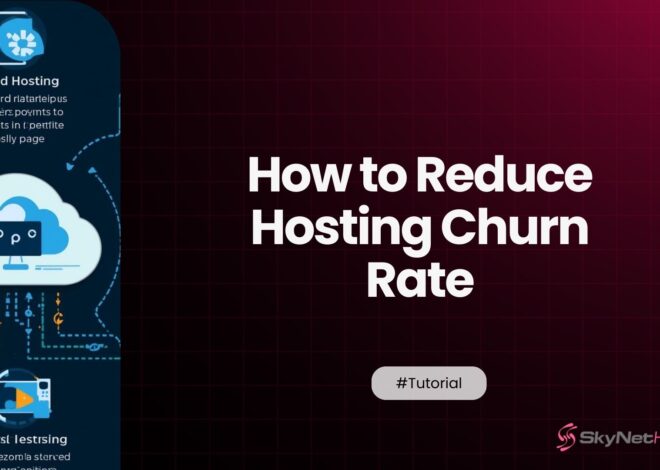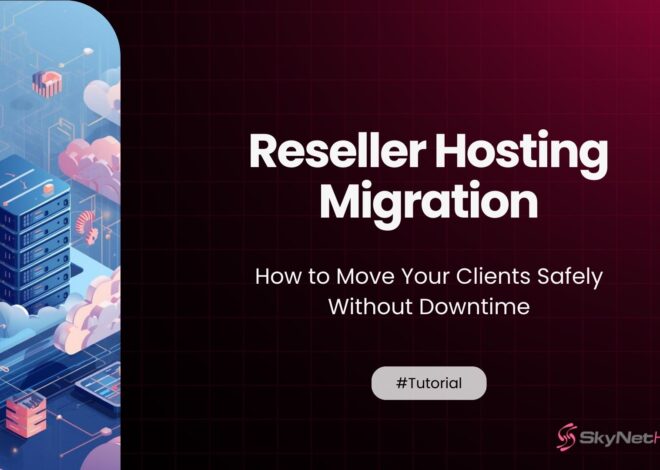
What is VDS? Complete Guide to Virtual Dedicated Servers
TL;DR: Virtual Dedicated Servers (VDS) – Key Takeaways for 2025
- VDS Meaning: A Virtual Dedicated Server (VDS) provides dedicated CPU, RAM, and storage within a shared physical server environment through advanced virtualization.
- Key Differentiation: Unlike traditional VPS, a VDS server ensures fully isolated resources, eliminating the “noisy neighbor” effect for consistent performance.
- Benefits: Offers enhanced performance, full root/admin access, improved security, and robust scalability, bridging the gap between VPS and dedicated servers.
- Ideal Use Cases: Perfect for hosting VDS for high-traffic websites, game servers, development environments, and secure data storage.
- Cost-Effectiveness: Provides dedicated server-like performance and control at a more affordable price point than a full physical dedicated server.
- SkyNetHosting.net: A trusted hosting VDS provider with 23 years of expertise, offering reliable VDS hosting solutions tailored to business needs.
What is VDS, and how can it transform your business? Virtual Dedicated Servers (VDS servers) have become a must-have solution for businesses looking for cost-effective and flexible hosting infrastructure. Whether you’re running a tech startup, small business, or high-traffic website, understanding what is a VDS and its benefits can revolutionize your operations.
At Skynethosting.net, we pride ourselves on being a trusted name in the hosting industry with 23 years of expertise, delivering reliable and innovative solutions tailored to our customers’ needs. We believe in putting our customers first, offering personalized support and guidance every step of the way.
Wondering “What is VDS?” It’s a powerful, flexible hosting solution that offers enhanced performance and control. We’re here to break down its key benefits, use cases, and help you make the right choice for your business.
With Skynethosting.net, you’re not just getting a hosting provider, you’re getting a partner invested in your success for your VDS hosting needs.
What Is a VDS? Understanding the Virtual Dedicated Server Meaning
A Virtual Dedicated Server (VDS) is a form of web hosting that provides dedicated resources within a shared environment using server virtualization. Unlike traditional shared hosting, where multiple users share the same resources, a VDS offers users their own guaranteed CPU, RAM, storage, and operating system. This is the core VDS meaning: a virtualized slice of a physical server that behaves much like a dedicated one.
How Does a VDS Server Work?
A Virtual Dedicated Server (VDS) works by dividing one physical server into smaller, separate virtual servers. This is done using a technology called virtualization.
Think of it like splitting one big house into several private apartments. Each virtual server has its own space, resources (such as CPU, memory, and storage), and operating system.
This means you get more control and better performance because your VDS server doesn’t have to share resources with others, unlike shared hosting, where everyone uses the same resources.
It’s a reliable solution for those who need more power and flexibility for their websites or applications, making hosting VDS a popular choice.
Key Components of a VDS
To fully grasp what is VDS, let’s look at its essential building blocks:
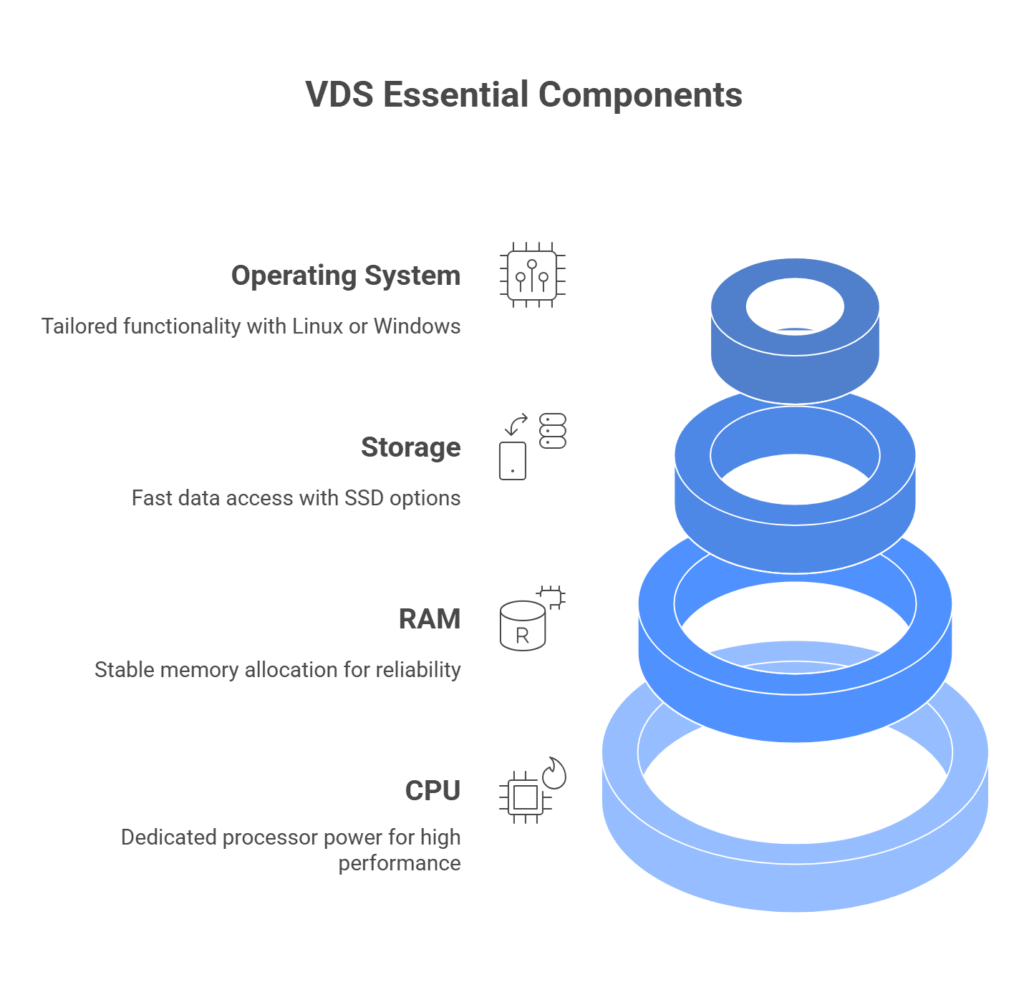
- CPU: Dedicated processor power ensures high performance for demanding applications running on your VDS.
- RAM: Stable memory allocation improves app functionality and reliability, crucial for consistent operation of your VDS server.
- Storage: Options like SSD ensure fast data access and retrieval speeds, optimizing performance for VDS hosting.
- Operating System: Choose between Linux VDS hosting or Windows VDS server for tailored functionality and full control.
If you’re seeking control over server management without the higher costs of a physical server, a VDS is an ideal option.
How Does VDS Differ from VPS and Dedicated Servers?
The hosting world can often feel confusing, so let’s clear up how VDS compares to other popular hosting options like VPS and dedicated servers.
Understanding these distinctions is key when evaluating what is a VDS’s place in the hosting landscape.
VDS vs. VPS (Virtual Private Server)
While both VDS and VPS utilize virtualization to create isolated environments, there’s a critical distinction, especially when considering what is VDS‘s core advantage:
- Resource Allocation: VDS offers fully dedicated resources (CPU, RAM, storage) that are not shared, whereas VPS clients may share some underlying server components, potentially leading to resource contention.
- Performance: With VDS, there is no “noisy neighbor” effect. Since resources are guaranteed, you ensure consistent performance for your applications, unlike some VPS environments.
- Isolation: VDS provides superior isolation, ideal for security-sensitive applications where performance predictability and data segregation are paramount.
Example Scenario: If you’re hosting an application that requires a lot of consistent resources, like a custom-built CRM system or a high-traffic e-commerce store, a VDS will ensure better performance than a VPS due to the dedicated infrastructure. This highlights a primary benefit of VDS server solutions.
VDS vs. Dedicated Server
When considering VDS hosting, it’s also important to compare it to a full dedicated server:
- Cost: A VDS is more affordable because you don’t pay for the entire physical server, but rather a dedicated slice of it.
- Scalability: VDS hosting offers greater flexibility as resources can be adjusted on demand without the need for physical hardware changes.
- Management: VDS solutions, especially managed VDS hosting, reduce administrative burdens compared to a dedicated server, which often requires significant technical expertise to manage fully.
Choosing between these options depends entirely on your business needs and budget constraints. For many, the balance struck by VDS meaning dedicated performance without dedicated hardware costs is ideal.
Choosing between these options depends entirely on your business needs and budget constraints.
| Feature | VPS (Virtual Private Server) | VDS (Virtual Dedicated Server) |
|---|---|---|
| Cost | Typically more affordable, sharing resources with other users. | Slightly more expensive due to better isolation and dedicated resources. |
| Performance | Performance may vary, as resources are shared with other VPS users. | Offers more consistent performance due to isolated resources. |
| Scalability | Easily scalable by adjusting virtual allocations. | Also scalable but with more emphasis on stability and isolation. |
| Resource Allocation | Shared, leading to the possibility of resource contention. | Dedicated, ensuring exclusive use of allocated resources. |
| Isolation | Moderate isolation, as it’s still part of a shared environment. | Strong isolation, mimicking a dedicated server environment. |
| Management | Can be either managed or unmanaged. | Often comes with managed options for reduced administrative effort. |
| Ideal Use Cases | Suitable for small to medium websites, applications, or testing environments. | Ideal for resource-intensive applications, larger websites, or businesses needing higher reliability. |
This table provides a detailed side-by-side comparison to help clarify the differences between VPS and VDS hosting options. For more information, check out our article on Host vs Server.
Key Benefits of Using a Virtual Dedicated Server
What makes VDS hosting the ideal choice for businesses? The advantages of a VDS server solution are numerous, offering a significant upgrade from shared or even basic VPS environments.
1. Dedicated Resources
With resources like CPU, RAM, and storage exclusively allocated to your VDS server, you avoid performance issues caused by other users on the same physical machine. This means your applications always have the power they need.
2. Enhanced Performance and Reliability
A high-performance VDS ensures faster website load times, handles high traffic seamlessly, and minimizes downtime. This level of reliability is critical for business-critical applications and websites.
3. Full Root/Admin Access
A VDS allows you to install custom applications, tailor your OS, and configure settings according to your exact requirements. This level of control is comparable to that of a full dedicated server, giving you complete command over your environment.
4. Improved Security and Isolation
Since each VDS is isolated from others at a deeper level than traditional VPS, your hosted websites and data enjoy a higher level of security. The actions of other users on the physical server won’t impact your security posture.
5. Scalability and Flexibility
Easily upgrade or downgrade your resources as your business grows or needs change, whether you’re handling increasing web traffic or expanding your infrastructure. This flexibility makes VDS hosting a future-proof choice.
Common Use Cases for VDS
From startups to enterprise-level businesses, VDS hosting is a versatile solution for many scenarios where a robust server VDS is needed.
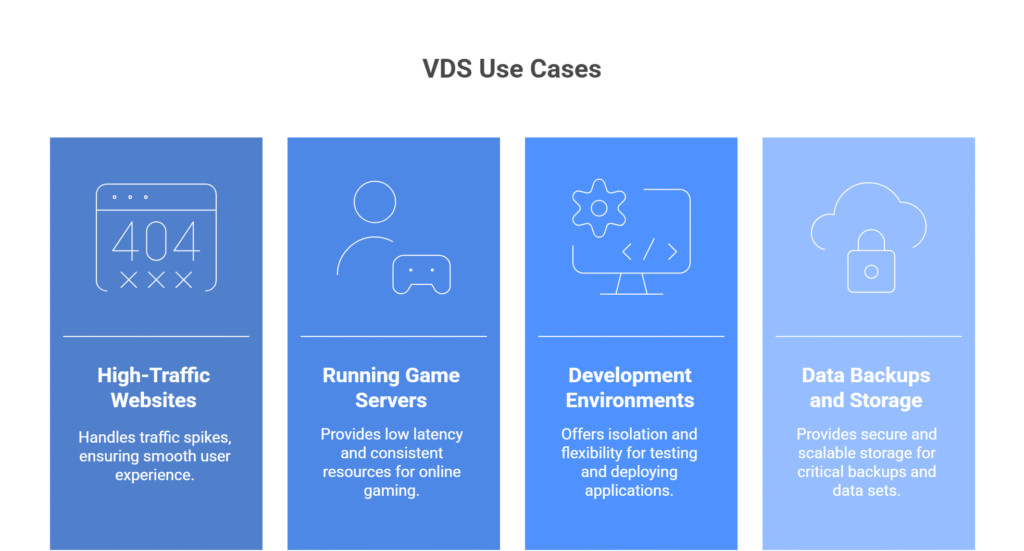
- Hosting High-Traffic Websites: If your e-commerce platform, media-rich blog, or news site experiences significant traffic spikes, a high-performance VDS can handle the load effortlessly, ensuring smooth user experience.
- Running Game Servers: Gaming platforms require low latency and reliable, consistent resources. VDS hosting is a cost-effective and efficient solution for this purpose, providing the stability needed for online gaming.
- Development and Testing Environments: A VDS offers developers the isolation and flexibility to test, debug, and deploy applications in a controlled environment without impacting live systems.
- Data Backups and Storage: Secure and scalable data storage makes VDS a great choice for businesses that need reliable, encrypted solutions for their critical backups and large data sets.
Setting Up and Managing a VDS
Getting your VDS server up and running is a straightforward process, especially with a supportive provider.
Essential Steps to Get Started with Your VDS
- Select Your Hosting Plan: Choose the VDS hosting specifications that align with your workload and budget requirements.
- Configure the Operating System: Install your preferred OS (Linux VDS hosting or Windows VDS server) to tailor the environment to your needs.
- Secure Your Server: Set up firewalls, SSH keys, and enable monitoring dashboards to protect your VDS from unauthorized access and attacks.
- Launch Your Applications: Deploy your websites, applications, or databases as needed, leveraging the dedicated resources of your VDS server.
Tips for Effective Server Management
- Perform regular updates to maintain security and optimize performance.
- Monitor resource usage through your hosting dashboard to ensure your VDS is performing optimally.
- Schedule daily or weekly backups for disaster recovery, protecting your data on your VDS server.
Should You Consider VDS Hosting for Your Business?
If your business relies on hosting high-traffic websites, running resource-intensive applications, or maintaining secure and scalable environments, a Virtual Dedicated Server is the way forward. With superior performance, security, and flexibility, VDS hosting truly bridges the gap between affordability and scalability, offering a robust server VDS solution.
For 23 years, Skynethosting.net has been trusted to deliver top-tier hosting solutions. Ready to take your hosting to the next level? Discover our reseller hosting, VPS hosting, and dedicated hosting plans designed to meet your needs. Explore today!
Frequently Asked Questions (FAQs) About VDS
What is a VDS and how is it different from a VPS?
A VDS (Virtual Dedicated Server) provides fully dedicated resources (CPU, RAM, storage) within a virtualized environment, ensuring complete isolation and consistent performance. A VPS (Virtual Private Server), while offering isolated environments, may still share some underlying hardware resources, potentially leading to performance fluctuations from “noisy neighbors.”
What does VDS meaning imply for businesses?
The VDS meaning for businesses is a powerful, cost-effective hosting solution that offers the performance and control of a dedicated server without the full cost. It’s ideal for those needing reliable, scalable, and secure environments for high-traffic websites or demanding applications.
Is VDS hosting cost-effective?
Yes, a VDS offers an excellent balance of performance and affordability. It provides many benefits of a physical dedicated server, such as dedicated resources and root access, at a much lower cost, making it a highly cost-effective hosting solution.
Can I customize my VDS server?
Absolutely! One of the key benefits of VDS hosting is full root/admin access, which allows for complete customization of your virtual dedicated server environment. You can install custom applications, choose your operating system (like Linux VDS hosting or Windows VDS server), and configure settings precisely to your requirements.
What are the main benefits of using a VDS?
The key benefits of using a VDS server include dedicated resources, enhanced performance and reliability, full root/admin access, improved security and isolation, and superior scalability and flexibility. These advantages make VDS a powerful choice for demanding online operations.

